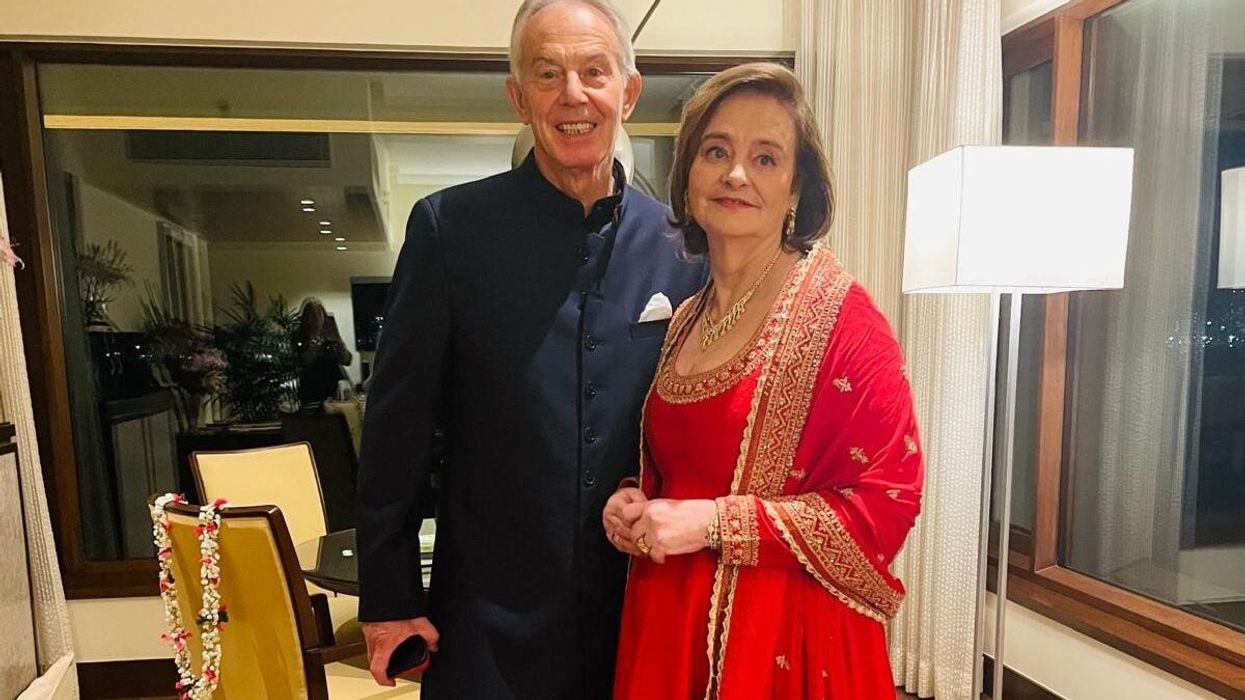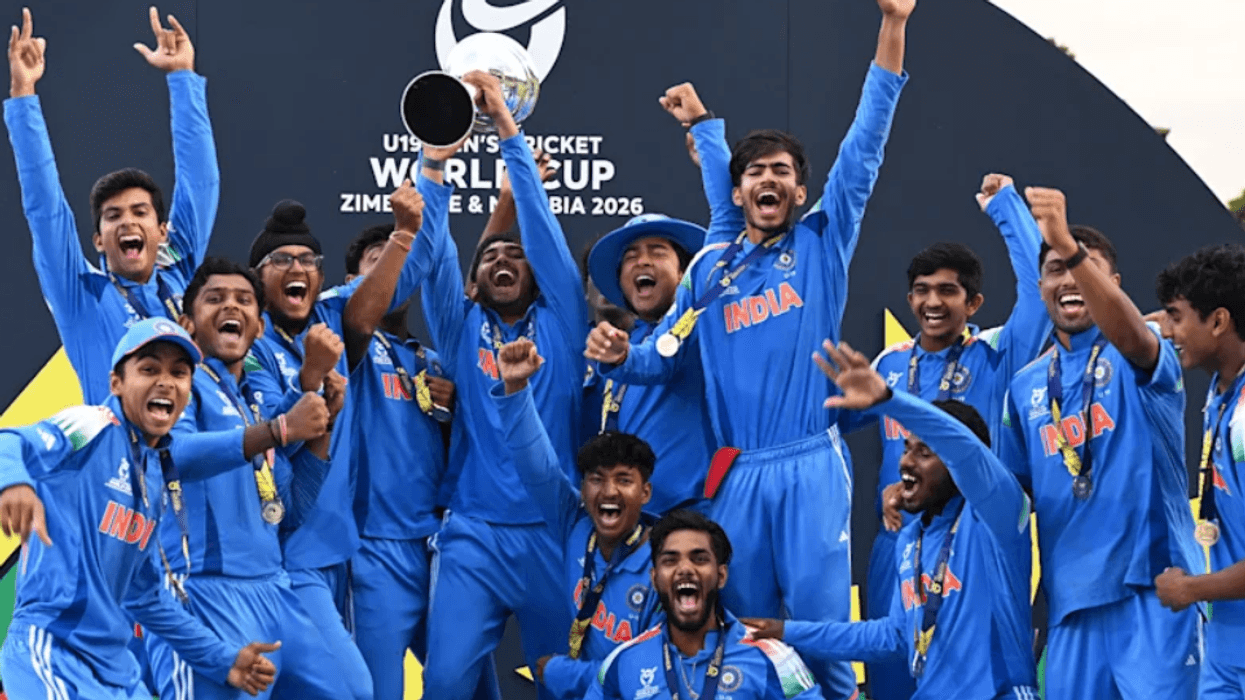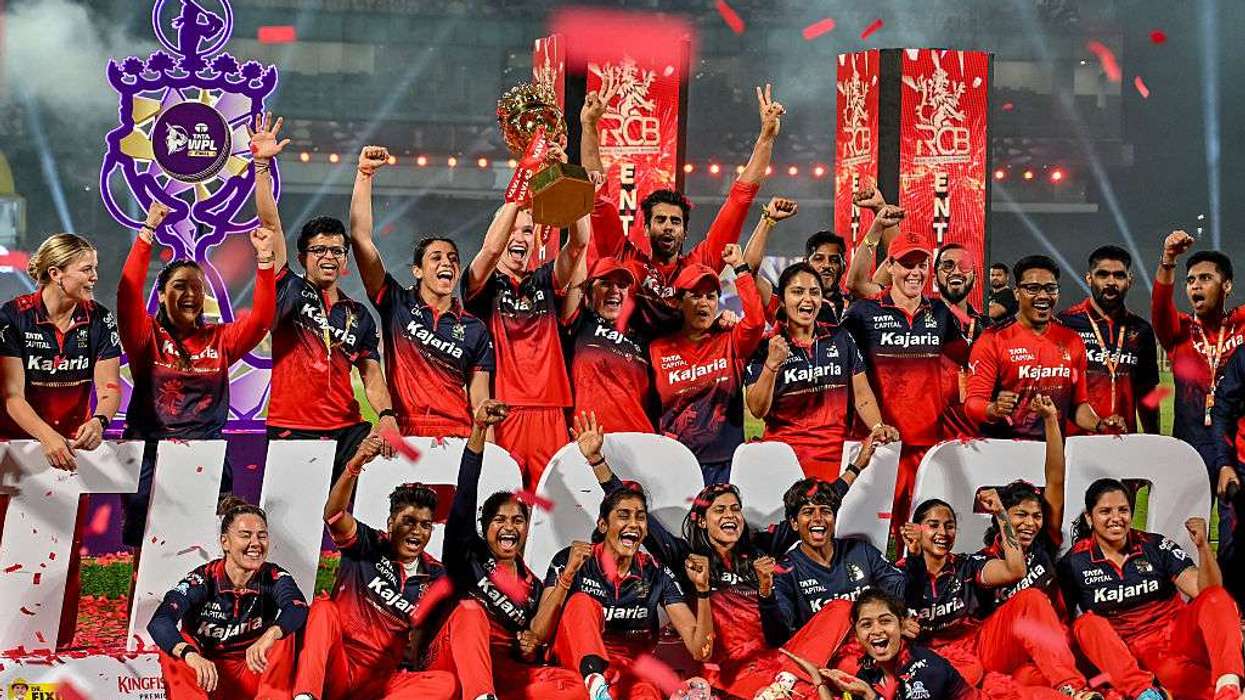It has been an impressive life for someone whose unconventional childhood greatly influenced her strong sense of justice. Cherie Blair was the first spouse of a British prime minister to have a successful legal career while also being in the public eye as the wife of Tony Blair.
In her autobiography, Speaking For Myself, Cherie describes her experience, balancing a rewarding career as a working mother of four children.
She was never going to be a political trophy wife, exchanging pleasantries in the background. Her unwavering focus has been to champion and raise global awareness to empower women through her foundation.
For successful women leaders, the mantra is not about who will let them do it, but who will stop them. As a barrister and judge, Cherie is used to speaking on behalf of others and resolving their issues. In an exclusive interview with Nisha Paul, Cherie talks candidly about her extraordinary life.
Tell us about your childhood. What is one quality from your childhood that you still have, which has helped or hindered you?
I was brought up in a typically northern working-class part of Liverpool. Two things were different: first, I was brought up a Catholic, and in those days, Catholics and Irish Catholics were regarded as a minority. The second difference was that before the divorce laws had been reformed, my father abandoned my mother, leaving her to look after her two daughters while living with her mother-in-law. It was scandalous at the time, as my father, the actor Tony Booth, was a well-known personality. That, perhaps, made my life a little different from that of my peers. Otherwise, it was a very happy childhood, dominated by women. One of my characteristics is persistence; I do not like to give up easily. That has driven me throughout my life.
As a KC (King’s Counsel), what is the most important thing you have learned from your first day on your feet until now?
Absolute preparation. You cannot succeed in business, whether it’s the legal business or any other kind, without putting in the work and preparation. It does not matter how brilliant or articulate you are. At the end of the day, you have to be on top of the facts and know exactly what you are talking about. That is the basic rule, and one cannot get away with not doing the hard work.
Who was or still is your mentor?
I have had several mentors in my life. I believe in the importance of mentoring. When I started out, mentoring was not a term we used. Looking back on my career, I had a number of male mentors because there were very few women practicing law in 1976 when I became a lawyer. Only one in 10 lawyers was a woman, and I was fortunate to have great male lawyers like Michael Belloff and Frederic Reynold (who both later became KCs) supporting me. At that time, most women lawyers were my contemporaries, though there were some amazing trailblazers like Rose Heilbron. She was the first-ever woman KC from Liverpool. She was not a mentor but a role model. My grandmother admired her. Subconsciously, I felt if a woman from Merseyside could become a famous KC, then I could too.
Ambition or talent—which do you think matters most?
I think you have to have both. You need talent, but if you do not have the ambition to use that talent and see where it takes you, then you will not move forward. They should work together in sync. Nowadays, there are many more options for earning a living.
How politically committed do you feel now? What are your impressions of prime minister Keir Starmer?
I joined Labour when I was 16. My father was a big supporter. At that time, Harold Wilson was the leader, and that has always stayed with me. I still remain a huge supporter and am delighted to see we had such a convincing victory in July. I am glad to see the government hit the ground running. With the King’s speech, I feel there is a vision for where we are headed. For the past couple of years, the country was looking inwards and not moving, but now this is a chance for us to get back on the front foot. Prime minister Starmer has been in the job only a few weeks, but he has taken to it naturally and has clearly got a plan.
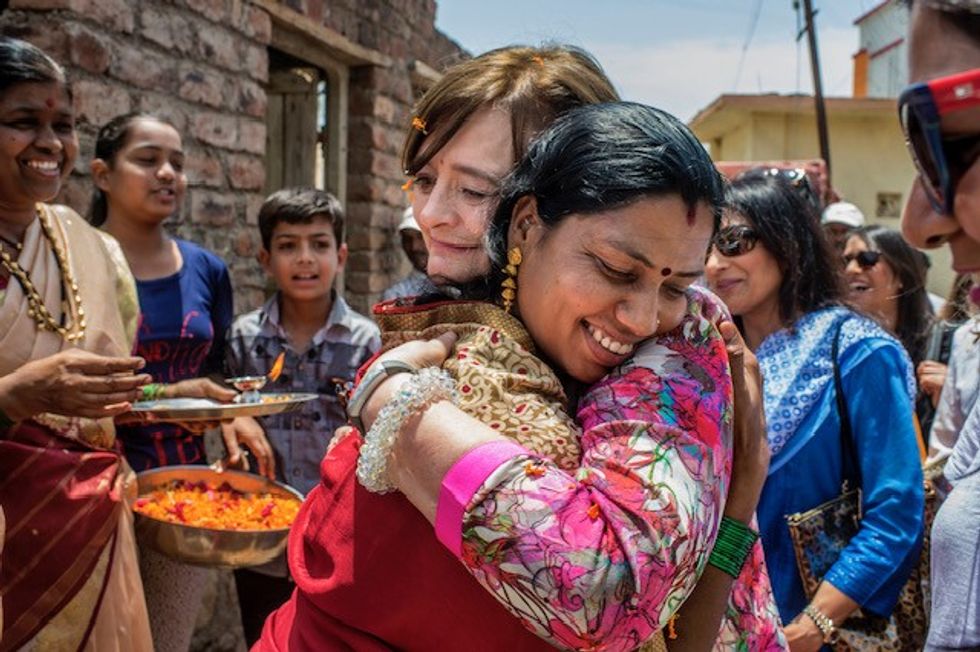
What is the present focus of your Cherie Blair Foundation for Women, and what is the next step?
The foundation was set up in 2008, after my husband and I left Downing Street, where we had been for 10 years. Our focus since then has been on how we can use technology to provide women entrepreneurs in lower- and middle-income countries with access to training, networks, and mentors they need to set up, grow, and sustain their businesses. That’s our mission, and we’ve reached out to 250,000 women in over 100 different countries. We have an ambitious plan to reach a million women by 2030. That is also the year when our sustainable development goals are expected to be achieved. Our goals are about equality for women and girls. The reality is that at the current rate of progress, the World Economic Forum reckons it will take 150 years for women to achieve equal economic opportunity with men. That is simply not good enough, and we have to find a way to move the needle on this. We are working with partnerships to bring our expertise in women-centered training using technology to deliver that. The apparent transformation in technology has allowed us to action our programs for many more people, share this knowledge, and provide access to more mentors and networks.
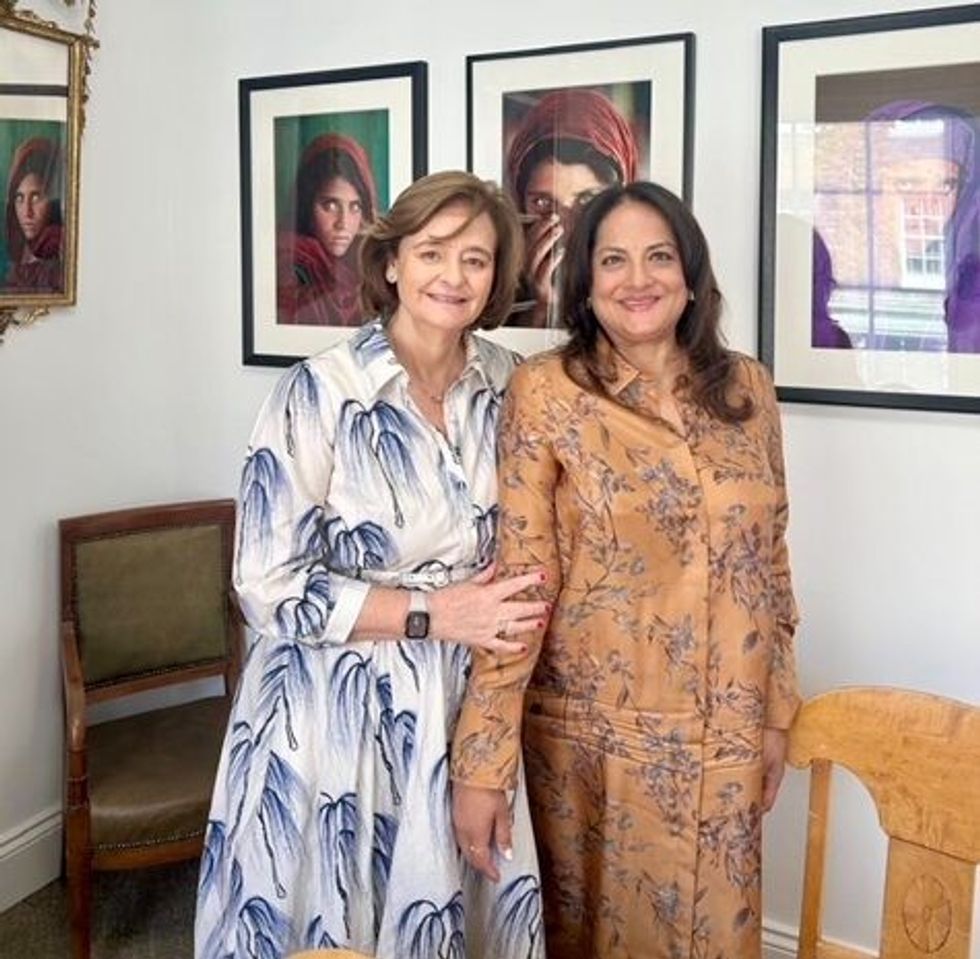
I believe you are an executive producer of the film The Rock Pile; is that a genre you wish to continue to build on?
That was a small passion project. It is a message of hope for people of different faiths in Jerusalem, and it’s about how we can learn from boys playing football and their personal friendships. I do not have any ambitions to do any more films. I am much more focused on my legal career. My law practice as executive chair and the foundation take up a lot of my time, as do my eight grandchildren.
How do you rest and recharge? Do you ever do nothing?
It is important to have some time to yourself. I like to keep fit as I get older and am keen on yoga. I do Anusara yoga—it is partly breathing and focuses on movement. I do Pilates as well, have personal training, and enjoy playing tennis. I love going to the theatre, seeing opera, and ballet. That comes from my background, from my mum and dad.
